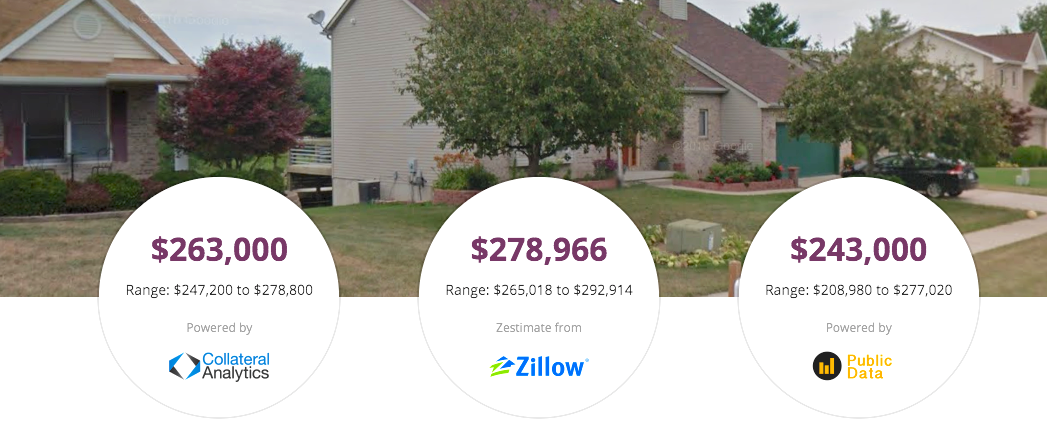How Accurate Is Zillow’s Zestimate?

With dozens of ways to compare home values online, you’ve probably noticed that you don’t always get the same results on different sites. Putting your home address into Zillow, Trulia, Redfin or other online home search tools will all yield different results. So, how accurate is Zillow? And what determines the “Zestimate” accuracy? Can you rely on this number for a home sale or purchase?
How Accurate Is Zillow?
What is the Zestimate?
Before answering how accurate Zillow is, it’s important to understand what Zillow’s Zestimate is, where it comes from, and what it is intended for.
Zillow is a software product built by statisticians and business people for consumers, not by or for real estate professionals. This has made it is accessible and easy to understand, but it is also not intended to replace a real estate professional’s expertise. Zillow emphasizes this themselves, stating on their website that the Zestimate ”is a starting point in determining a home's value and is not an official appraisal.” The Zestimate is a good starting point, but relying on it for more than that may be a mistake.
Many homeowners and buyers not only wonder how accurate Zillow is, but also where the Zestimate accuracy comes from. The Zestimate’s accuracy is determined by a “proprietary automated valuation model.” Zillow keeps their actual algorithm a secret, but explains that it is based on public records and prior sales. Different aspects of the home, such as square footage, bedrooms, and bathrooms, are retrieved from public records, and these values are assigned a weight, which varies by geography and time. From this, the algorithm produces a price. Other websites use a similar approach, though with their own algorithms and models.
Is the Zestimate Accurate?
How accurate Zillow is varies by region. On average, about half of Zillow’s listings are accurate to within 5% of a home’s actual sale value. The other half are further away, and it’s difficult to tell by how much. In Dallas-Fort Worth, for example, less than a third of homes are priced to within 5% of the real value. In Cleveland, less than half are within 5% of the real value, and only about 65% are within 10% of the real value. On a $200,000 home, this is a $20,000 difference.
Get the most accurate home value estimate »
What Is Zillow Missing?
For purely number-based questions using accurate databases, statistics can provide beautiful solutions. However, the solution is only as accurate as the numbers going into the algorithm. In real estate valuations based on public records and tax assessments, this can be a problem. When homeowners add valuable features to their home, or when homes deteriorate, an official valuation isn’t generally first priority. Maintaining accurate records for every home is generally not the highest priority for busy city governments, either.
It is also difficult to say how accurate Zillow is for homes near notable features. Being close to a good school, near an up-and-coming shopping district, or neighboring an attractive park will all raise home values. Being too close to a busy highway, a poorly maintained building, or a flood zone will lower home values. However these features could only be identified by someone who knows the area or has seen the home.
Furthermore, statistical algorithms don’t account for non-numerical factors, such as feelings a person may have. In real estate, the way a buyer or seller perceives a home can affect the price greatly. This is what makes home staging and curb appeal so important.
Finally, the Zestimate’s accuracy does consider the actual sale values of a home, but it doesn’t include concessions home buyers or sellers may have made during the deal. Realtor negotiation tactics can make thousands of dollars in differences in closing costs or repairs which aren’t visible in the sale price.
Is Zillow Accurate Enough To Price My Home?
While Zillow can generally tell you if your home has increased or decreased in value, or how much equity you’ve acquired, Zillow is not accurate enough to price your home. A real estate professional uses public data and market info, but they will also find comps, walk through the home and the neighborhood, use detailed data provided by the MLS, and much more to accurately assess your home. Whether you are buying or selling your home, make sure you get all the information you can before putting a solid price on the property.

